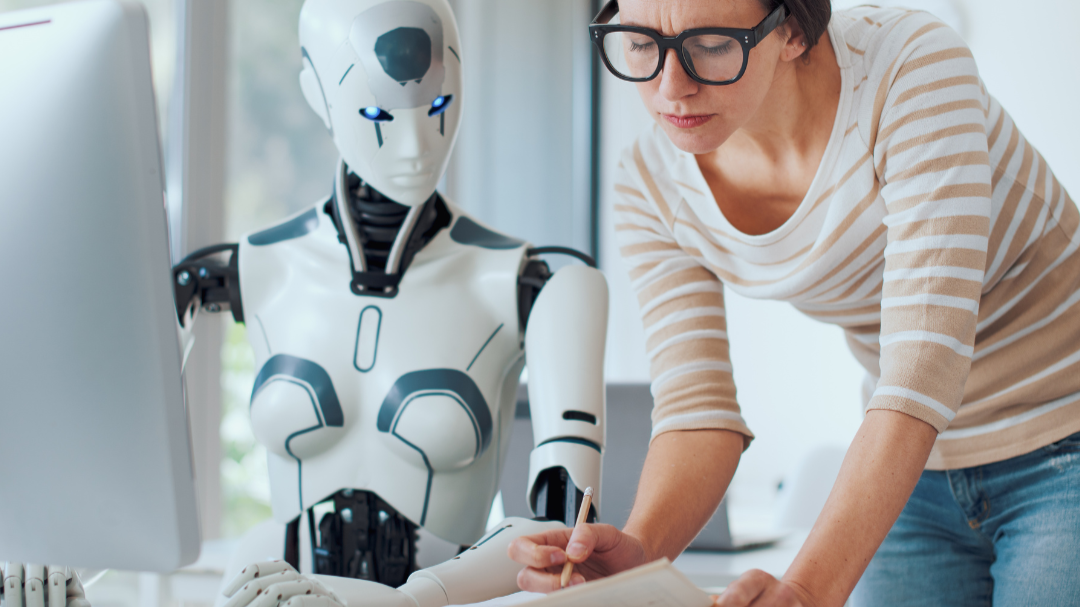Are We Entering The Age of Artisanal Humanity?
Will the human touch become a luxury?
By chris hibbs, director of external relations
16 july 2025
|
I am an AI convert. Having been both a doubter and unashamed lover of all things analogue, I must admit that I have seen the light. Chat GPT and the like have changed my professional life, providing professional efficiencies beyond my imagination. Yet, I am left wondering, what does this mean for my own imagination, my own authenticity and humanity? A few years ago, the word “artisanal” was most often used to describe bread, ceramics or coffee, objects shaped by human hands in small batches, often with great pride and greater expense. But as artificial intelligence begins to generate language, images, music and video at an extraordinary scale and speed, the term is beginning to acquire a broader and more urgent relevance. We are entering a period in which the market will be saturated with machine-made content. Blog posts, marketing campaigns, illustrations, speeches, even books, can now be produced not in weeks or days, but in seconds. For businesses, this is efficient. For consumers, it is convenient. For creative professionals, it is disorienting. And for society, it raises an important cultural and economic question: if anything can be generated instantly, what is worth paying for? I wonder if we are now approaching the age of what we might call artisanal humanity, where content shaped by human minds and emotions becomes increasingly prized, not for its perfection, but for its provenance. The human touch, thoughtful, flawed and personal, may soon be the one thing which machines cannot convincingly replicate. The flood and the filter It is not an exaggeration to say that artificial intelligence is changing the way we make things. Tools such as ChatGPT, Copilot and others are capable of mimicking tone, style and structure with astonishing speed. Some of what they produce is derivative, some of it impressive. None of it takes time, context or care. The effect is saturation. When words, images and ideas can be generated instantly, their value is diluted. The internet is already filled with repetitive, optimised, low-cost content designed more for algorithms than for people. As this becomes the norm, the distinctiveness of human-authored work begins to stand out. Already, some creators and companies are distinguishing their output with a label: “human-made.” It is becoming a selling point, like “organic” or “handcrafted.” Long-form journalism, letterpress printing, hand-illustrated books and unplugged music recordings are all part of the same quiet movement, a shift toward authenticity as luxury. Why imperfection matters This is not a new idea. The Industrial Revolution prompted a similar response, as handmade goods gave way to mass production. In Britain, the Arts and Crafts movement emerged in defence of beauty, craftsmanship and individuality. Its pioneers argued that there is intrinsic value in the imperfect, the slow and the difficult. What mattered was not just the object itself, but the labour and love that shaped it. The same principle applies today. A computer can compose a passable poem in iambic pentameter, but it cannot suffer writer’s block, fall in love or watch its children grow up. It cannot reflect, or regret, or hope. And although it may imitate these things, we are beginning to recognise the difference between performance and presence. It is not that AI will replace human creativity entirely. It will change it, challenge it and in some cases improve it. But it will also highlight the value of what machines lack: vulnerability, unpredictability and meaning. |
Scarcity and value Economists will remind us that scarcity drives value. In a world flooded with AI-generated content, the truly rare commodity will be time and attention, along with the kind of work that cannot be automated. That might include not just art or literature, but also conversation, mentorship, craftsmanship and the live, unfiltered moment. A letter in one’s own handwriting. A song sung out of tune. A novel that took ten years to write. These may come to represent a kind of cultural capital that AI cannot manufacture. It is, perhaps, the paradox of automation. The more we hand over to machines, the more we may come to value the things only people can do. The future of the handmade mind This shift has implications for education too. In schools and universities, there will be a growing premium on the distinctly human skills: critical thinking, empathy, interpretation, and creativity. Knowledge alone is no longer enough. Machines have that covered. What matters is what we do with it. The same applies in the workplace. As automation expands, employees will be valued less for what they can execute and more for how they can imagine, collaborate and adapt. Artisanal humanity, then, is not a nostalgic return to the past. It is not anti-technology. Rather, it is a recognition that the tools we build should not erode what makes us human, but reveal it more clearly. In the end, the most powerful response to an age of machine-made everything may be something quietly radical: to create slowly, with care and in full view of our own imperfections. |



